Hey there, fellow navigators of life! If you've ever found yourself wondering whether your relationship with your parents is more dysfunctional than a GPS with a mind of its own, you've stumbled upon the right article. We're about to dive into the wild world of parent-child dynamics, where the signs of an unhealthy relationship are as subtle as a neon sign in a dark alley. It's about to get real, and maybe just a tad too relatable. After all, life's too short for toxic connections, and it's time to figure out if your relationship with the 'rents is due for a major upgrade or if it's smooth sailing on the family cruise.
Constant Criticism
We're about to talk about parents who critique like they're professional judges on a reality show where you're the unwitting contestant. It's like having a personal cheering squad that only knows one chant, and it goes something like, "You can't do anything right!" It's like navigating a life obstacle course with them throwing shade instead of encouragement,
 Image Source: Bored Panda
Image Source: Bored PandaThis can leave you eeling like you're in a confidence-crushing game show with no cash prize at the end. It's time to break free from this negative loop and swap those critique sessions for a confidence-boosting pep rally! Your self-esteem deserves its own red carpet moment, not a constant walk of shame.Original content sourced from Femanin.com
Lack of Support
Imagine life as a giant potluck dinner, and you're there with a plate full of challenges and important milestones. Now, your parents are supposed to bring the emotional and practical support dishes to complement your life feast, but instead, it's like they showed up with an empty cooler. It's the emotional equivalent of being stuck on a deserted island with nothing but a volleyball named Wilson, except Wilson's on vacation too.
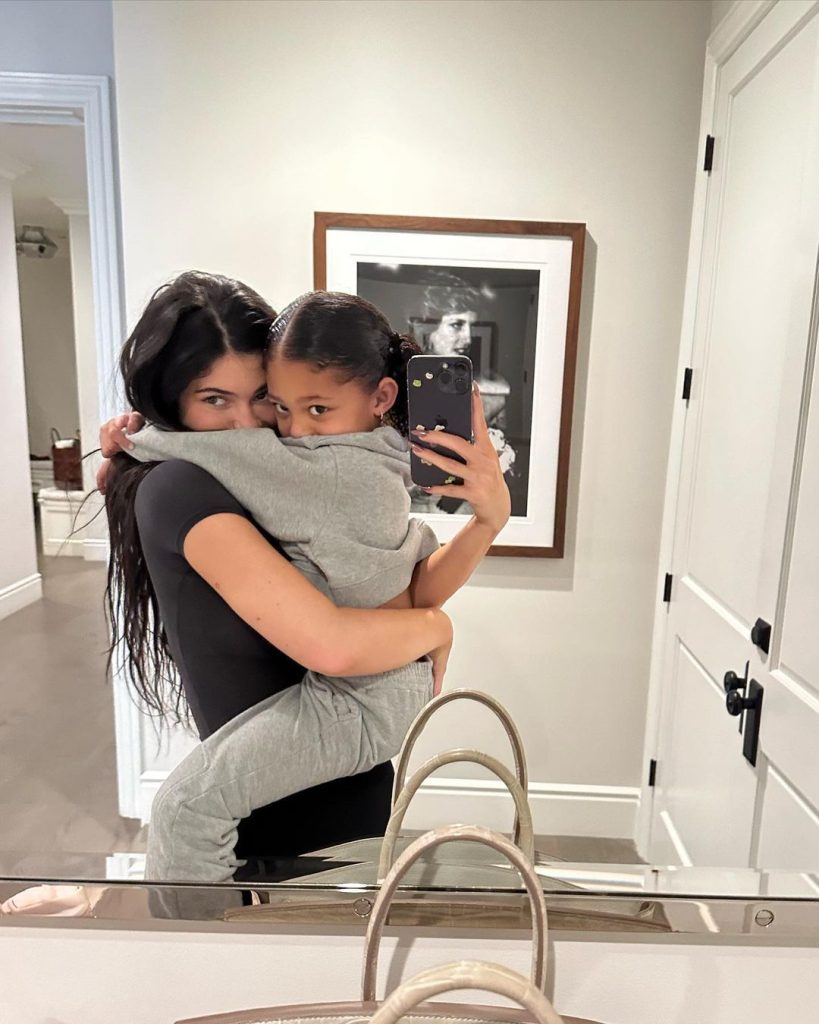 Image Source: Harper's BAZAAR
Image Source: Harper's BAZAARWithout that vital support, it's like trying to build a sandcastle with a spork – frustrating and bound to crumble. Let's swap out that empty cooler for a buffet of encouragement and a feast of shared victories. Because life's a team sport, and your parents should be your star players, not MIA in the emotional support department!
Overly Controlling Behavior
Life with overly controlling parents is like trying to dance to your favorite song while someone else is holding the remote control to your moves. It's like having a personal GPS that reroutes you every time you try to take a detour, leaving you stuck in the traffic of their expectations. It's like trying to spread your wings, but they're holding the feathers, determined to keep you grounded.
 Image Source: The Today Show
Image Source: The Today ShowIt's time to break free from the puppet strings and start choreographing your own dance, painting your life's canvas with the colors you choose. Because autonomy isn't just a fancy word; it's your ticket to the freedom festival, and your parents should be cheering you on from the front row, not trying to be the backstage directors of your life.
Neglect or Absence
It's like playing a round of emotional Jenga, but instead of carefully removing blocks, they're taking entire floors out of your trust tower. When your parents are emotionally or physically MIA, it's like trying to play a love song on a broken record – the melody just keeps skipping.
 Image Source: Reddit
Image Source: RedditTheir absence isn't just a minor glitch; it's a full-blown emotional power outage that leaves you in the dark, searching for a flashlight of reassurance. It's like trying to find Waldo in a sea of emotional chaos, only to discover that he's on a permanent vacation.
Verbal or Physical Abuse
When it comes to relationships, abuse is like inviting a bull to a china shop. It's not a dynamic duo; it's a toxic tag team that leaves you emotionally battered and bruised, like a piñata at an anger-management party. Verbal insults become the not-so-welcome soundtrack to your life, playing on repeat like a broken record you never asked for.
 Image Source: Filter Free Parents
Image Source: Filter Free ParentsAbuse doesn't just leave scars; it's a graffiti artist on the walls of your self-esteem, spray-painting messages you didn't sign up for. It's time to exit stage left from this drama, flip the script, and surround yourself with healthy relationships that don't resemble a demolition derby.
Constant Comparison
Dealing with parents who have a PhD in the art of comparisons is like attending a never-ending talent show where you're the contestant and everyone else seems to be scoring perfect 10s. It's not just a mere observation; it's a relentless highlight reel of how you measure up against the neighbors, your siblings, or that overachieving cousin who seems to have life on an easy mode.
 Image Source: Everything Jersey City
Image Source: Everything Jersey CityIt's time to break free from this comparison trap, where the only winners are insecurity and unhealthy competition. Your life is not a competition; it's a unique journey with its own twists and turns. So, let's hit pause on the endless comparisons and start celebrating each family member's unique melody in this symphony called life.
Emotional Manipulation
When your parents start dipping into the dark arts of manipulation, it's like trying to navigate an emotional minefield with them holding the map to the explosions. t's emotionally draining and leaves you feeling powerless, like you're constantly walking on eggshells.
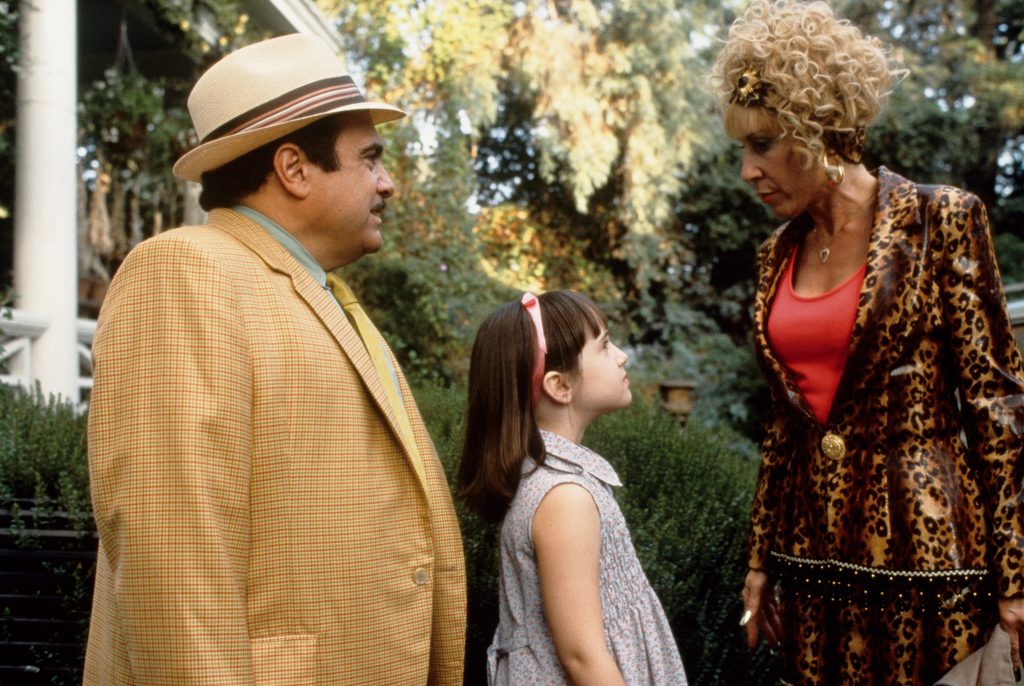 Image Source: IMDb
Image Source: IMDbThese manipulative tactics don't just create tension; they build a wall between genuine connection and leave you questioning your own emotions. It's crucial to recognize these signs, set boundaries, and prioritize your mental well-being. You deserve relationships built on open communication and mutual respect, not a constant tug-of-war fueled by emotional manipulation.
Lack of Boundaries
When your parents consistently ignore the "Keep Out" sign on the door of your personal boundaries, it's like having a leaky roof in your relationship. Your need for personal space and autonomy becomes an afterthought, and it feels like you're living in a house where the walls have ears.
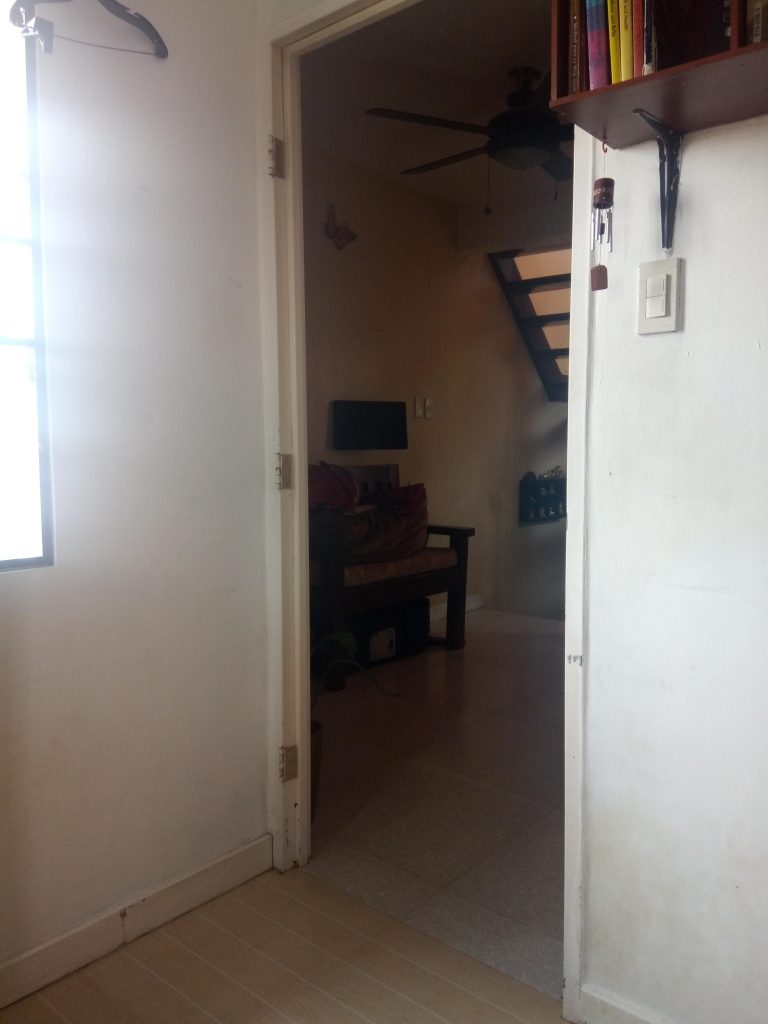 Image Source: Reddit
Image Source: RedditIn a healthy parent-child dynamic, personal space is sacred ground, and autonomy is the air we breathe. When those boundaries are consistently ignored, it's time to have a serious chat about the importance of respecting each other's space. Because a relationship without
Unresolved Conflict
When the air is thick with unresolved conflicts between you and your parents, it's like having a constant storm cloud hanging over your relationship. It's not just about the occasional thunder; it's the consistent rumble of disagreements that never see the light of resolution.
 Image Source: Mamamia
Image Source: MamamiaChronic unresolved conflicts are like a festering wound; the longer they linger, the deeper the damage. It's time to address the underlying issues, not just put a band-aid on the surface. A healthy relationship isn't about avoiding conflicts but finding constructive ways to resolve them. It's time to let the storm pass, clear the air, and create a space where conflicts are addressed head-on.
Conditional Love
When your parents attach strings to their affection, it's like trying to navigate a relationship maze with an ever-changing map. It's not about the love itself; it's about the fine print that requires you to constantly dance to a tune that matches their expectations.
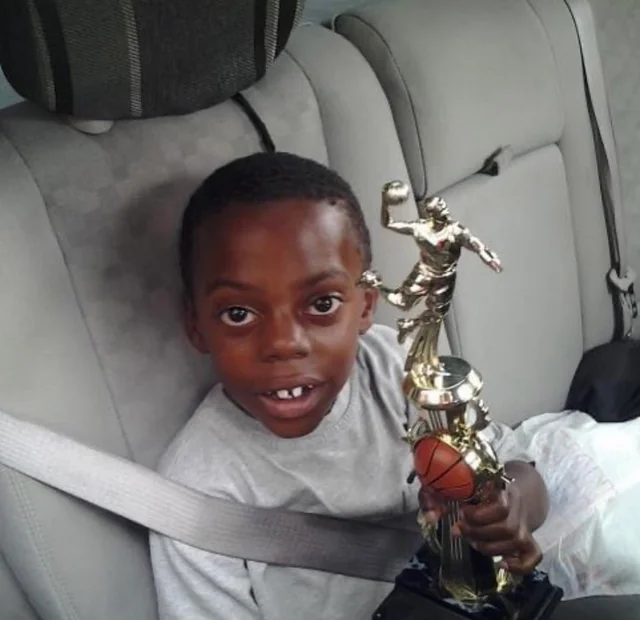 Image Source: Reddit
Image Source: RedditLove should be the glue that holds relationships together, not a reward for meeting certain criteria. When affection becomes a conditional currency, it leaves you feeling like you're on an emotional rollercoaster, and the ride never stops. It's time to break free from this love-on-a-leash scenario, where your worth isn't determined by a checklist.
Lack of Trust
In the symphony of relationships, trust is the conductor, setting the rhythm and harmony. But when your parents start playing the suspicion solo, it's like introducing a sour note into an otherwise melodious tune. It's not just about the lack of trust; it's the discord that follows, making the whole song sound off-key.
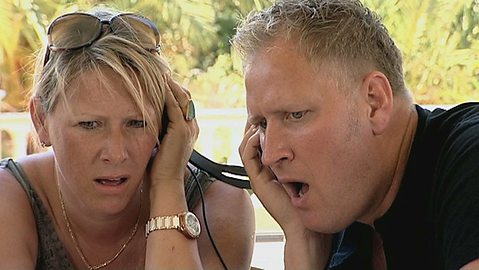 Image Source: Cultured Vultures
Image Source: Cultured VulturesConstant mistrust is like trying to build a house on quicksand – no matter how hard you try, the foundation remains unstable. It's time to address the trust deficit and rebuild the foundation with open communication and understanding. A healthy relationship is built on trust, the kind that allows you to dance through the rhythm of life.
Emotional Neglect
When parents forget to sprinkle in emotional support, validation, and empathy, it's like baking a cake without the sweet ingredients – you end up with something that's missing the essential flavor of connection. It's not just about feeling unimportant; it's the echoing silence when your emotions are screaming for acknowledgment.
 Image Source: Reddit
Image Source: RedditWithout the emotional support and understanding, it's challenging to feel heard or supported, impacting your overall emotional well-being. It's crucial to address and bridge this gap for a healthier, more emotionally fulfilling relationship.
Dismissive Attitude
When parents brush aside your feelings, opinions, or achievements as if they're flipping through an outdated magazine, it's like trying to build a tower with crumbling blocks. Your experiences and emotions become like puzzle pieces that don't fit into their narrow perspective.
 Image Source: Junkee
Image Source: JunkeeFeeling invalidated and unimportant in the eyes of your parents isn't just a fleeting emotion; it's a heavy backpack you carry through life, slowing down your stride. It's time to unload that baggage and create an environment that nurtures your self-confidence and growth.
Gaslighting
So, gaslighting, it's like this sneaky maneuver where someone messes with your reality GPS. Imagine you're cruising along, confident in your directions, and bam! Someone throws in some alternative facts, making you question if you're headed to the beach or the Bermuda Triangle.
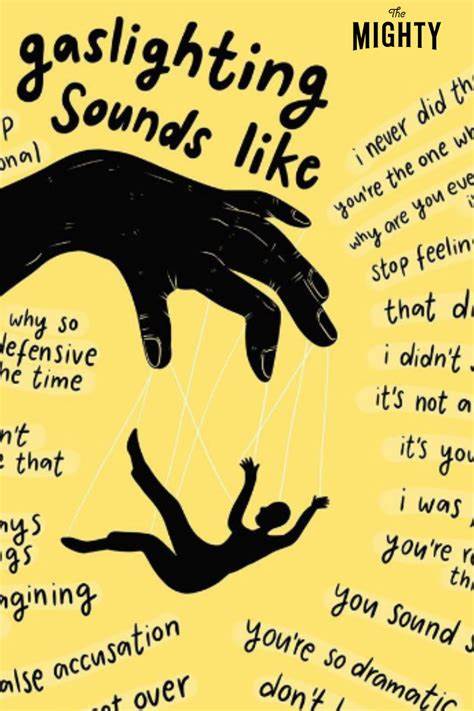 Image Source: The Gaia GirlX
Image Source: The Gaia GirlXThis mind-bending magic trick can leave you scratching your head, wondering if you're the star of your own Truman Show. Next thing you know, you're in a mental maze, navigating self-doubt like it's a dark, twisty labyrinth. Your perception of reality gets more twisted than a pretzel at a yoga class gone wrong.
Lack of Communication
Let's talk about communication – the unsung hero or the villain of relationships, depending on how it plays out. Imagine it's the Avengers of connection, and effective communication is your Iron Man suit. Without it, you're just a regular human trying to make sense of a world filled with relationship superheroes.
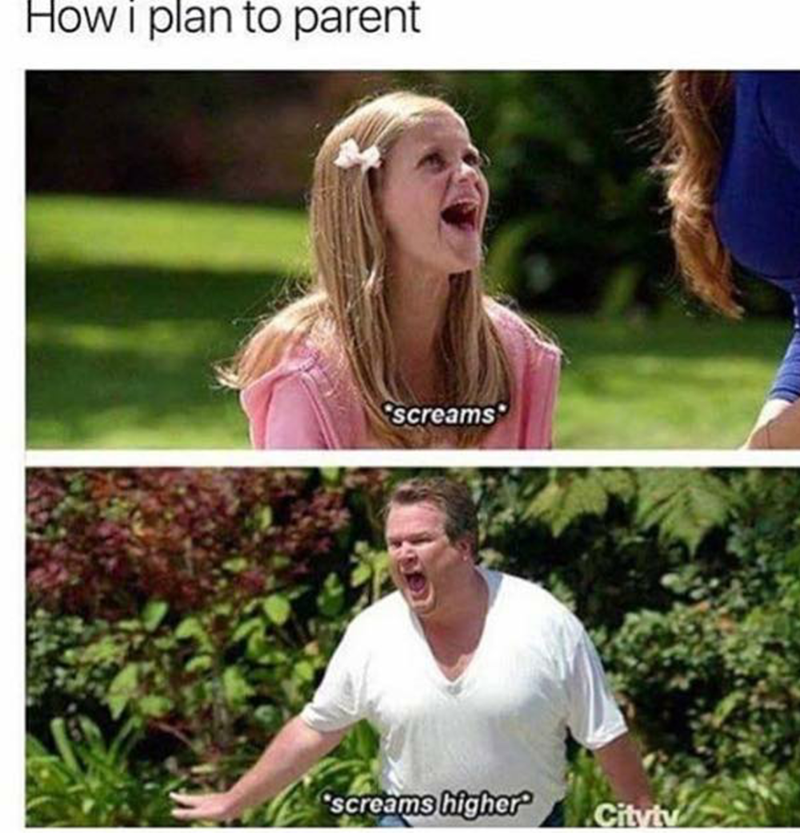 Image Source: Cheezburger
Image Source: CheezburgerNow, we all know open dialogue is the secret sauce in this relationship stew. But if you're stuck in a conversational desert with your parents, it's like trying to find water in a barren wasteland. You're parched for meaningful exchanges, and every attempt at a chat feels like sending a message in a bottle that never gets a reply.
Emotional Instability
So, your parents are the headliners of this wild show, and their mood swings are the main event. One moment, it's all sunshine and rainbows; the next, it's a thunderstorm that leaves you wondering if you should build an emotional ark to weather the storm.
 Image Source: Reddit
Image Source: RedditAnd let's not forget the uncertainty that comes with the emotional jackpot. You never know if a simple request for the TV remote will be met with a smile or a thunderous storm cloud. It's like living in a sitcom with no laugh track because, well, nobody knows if it's time to laugh or brace for impact.
Excessive Pressure
So, your parents are the captains of the achievement squad, and they've got this playbook that demands nothing short of excellence. It's not just about acing that math test; it's about setting the curve on fire and turning your report card into a masterpiece that deserves a standing ovation. No pressure, right?
 Image Source: USA Today
Image Source: USA TodayAnd oh, the stress! It's like carrying the weight of a thousand textbooks on your shoulders. Your backpack isn't just filled with notebooks and pens; it's a metaphorical Everest of expectations that you're expected to conquer daily. This isn't just the pursuit of excellence; it's a full-blown marathon with no finish line in sight.
Lack of Empathy
Now, let's dive into the ocean of empathy—or lack thereof—in the realm of parent-child relationships. Imagine empathy is this magical potion that lets you step into someone else's emotional shoes. You're there, trying on those empathy slippers, but, oh no, your parents seem to have misplaced theirs.
 Image Source: Reddit
Image Source: RedditBut hey, here's the silver lining: recognizing this empathy deficit is your ticket off Emotional Island. It's time to build a bridge over the empathy gap and create a two-way street of understanding. So, grab your metaphorical hammer and nails, because it's time to construct the empathy expressway in your family dynamic!
One-Way Communication
If your parents dominate conversations, rarely listen to your thoughts or feelings, and dismiss your opinions, it can indicate an unhealthy power dynamic. One-way communication prevents healthy dialogue and mutual understanding, leaving you feeling unheard and undervalued.
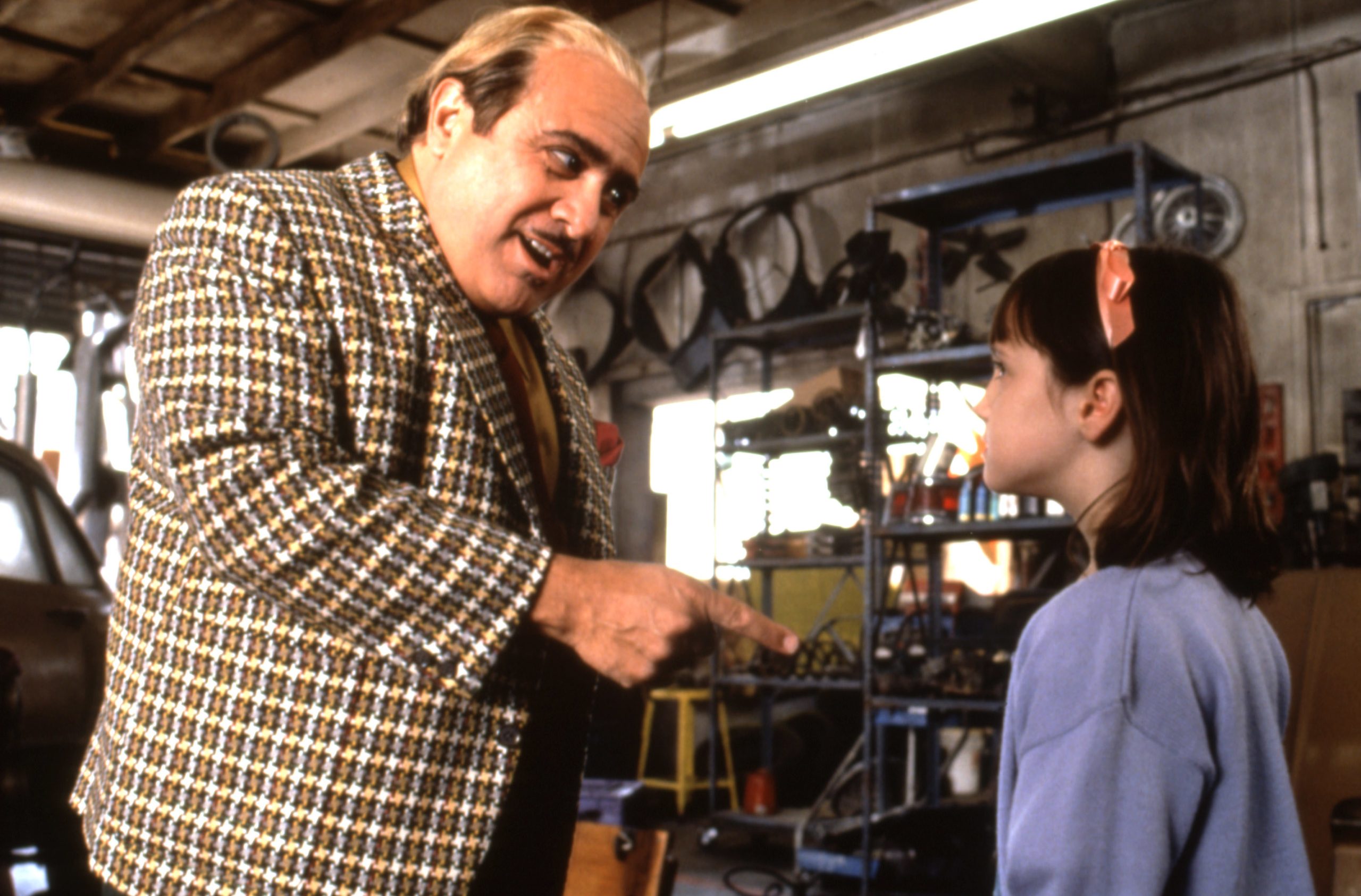 Image Source: BuzzFeed
Image Source: BuzzFeedIf you find yourself having to constantly listen to your parents talk it can leave you feeling. It's like having a backstage pass to the concert of life, but you're stuck in the green room, wondering if anyone even knows you're part of the band.
Favoritism
So, you know that unwritten rule in families? The one where parents are supposed to distribute love and attention equally among their offspring? Well, some parents missed the memo and went all-in on the "Favorites Edition" of family dynamics. Cue the dramatic music because, folks, we're diving headfirst into the realm of sibling favoritism.
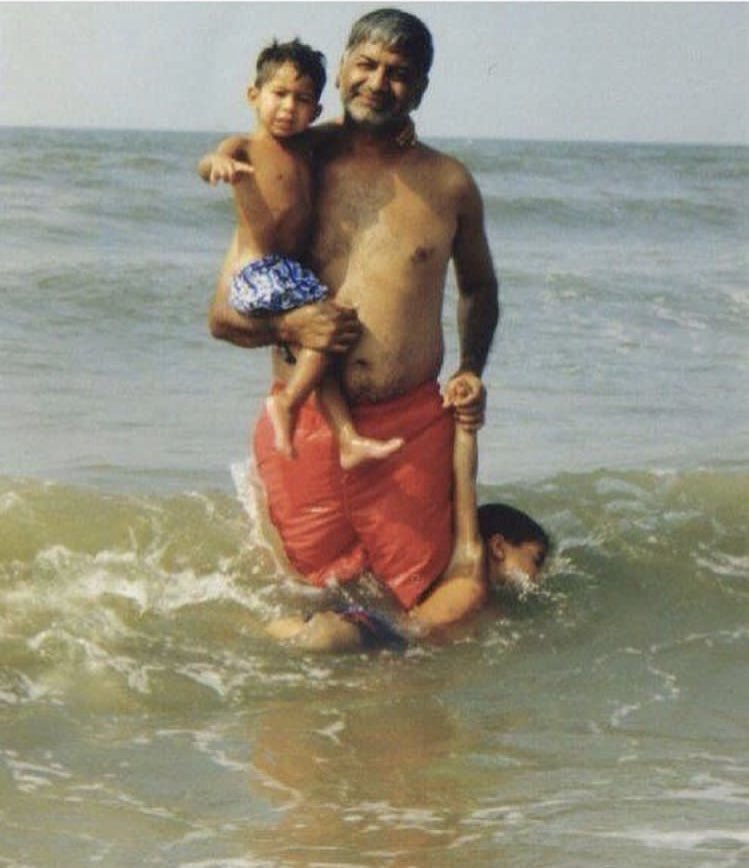 Image Source: Reddit
Image Source: RedditFavoritism throws a massive wrench into the well-oiled machine of sibling camaraderie. Suddenly, that bond you thought was unbreakable starts to resemble a fragile Jenga tower. As one sibling gets the spotlight, the others are left in the shadows, nursing a cocktail of hurt feelings and inadequacy.
Lack of Emotional Safety
When you find yourself tiptoeing around your feelings like they're a field of emotional landmines, it's a sign that something's off in the parent-child emotional express lane. Feeling unsafe to spill the emotional tea is like trying to juggle flaming torches—exciting at first, but eventually, someone's bound to get burned.
 Image Source: Reddit
Image Source: RedditWhen parents unintentionally slam the door on emotional expression, you become a master of suppression, hiding your feelings behind a facade that even Oscar-worthy actors would envy. Without emotional safety, forging a real connection with your parents feels about as likely as winning a golden ticket to the Willy Wonka factory of genuine connections.
Inability to Apologize
You could be standing there with a magnifying glass, a neon sign, and a marching band playing "Sorry Seems to be the Hardest Word," and they'd still find a way to dance around saying those two magic syllables. They really like to avoid saying the words don't they.
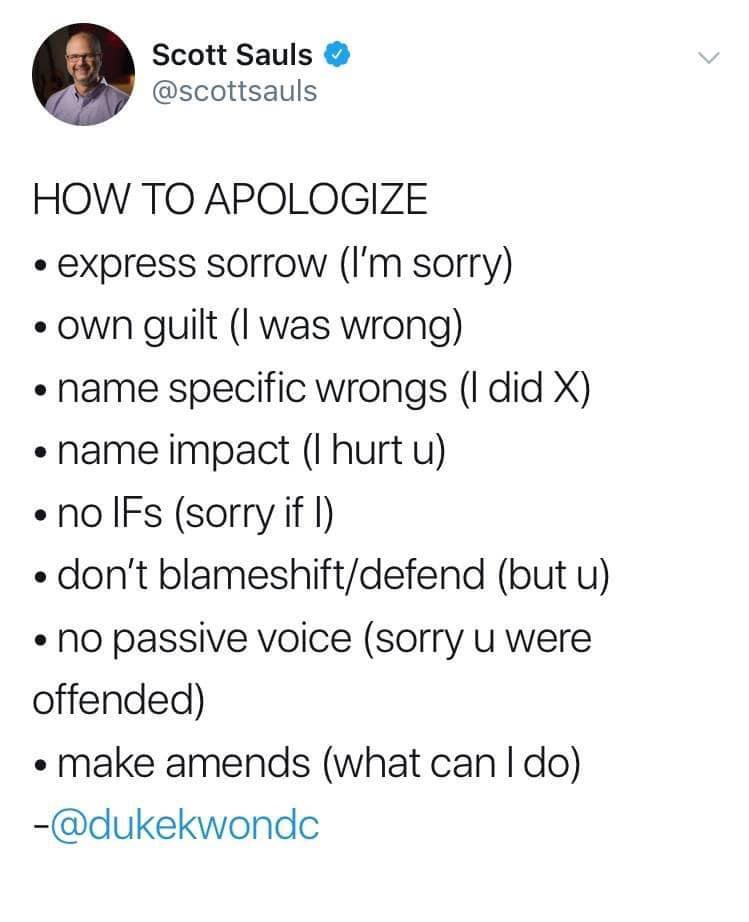 Image Source: Reddit
Image Source: RedditAnd here's the kicker – they'll swear up and down that they're not sorry because, you know, they didn't technically murder anyone. It's like they've got a PhD in justifying their actions. "Apologize? Who, me? I'm innocent, I tell ya!"
Lack of Validation
These parents are like emotional ninjas, expertly dodging any sentiment you throw their way. You could be on fire with passion or drowning in a sea of tears, and they'd still find a way to douse your emotional flames with a well-timed, "You're overreacting." It's almost like they've got a handbook on how to make you question every emotion you've ever felt.
 Image Source: Farm Fresh for Life
Image Source: Farm Fresh for LifeAnd let's not forget the legendary phrase: "You're too sensitive." Oh, the golden ticket to making you second-guess your entire existence. It's as if having feelings is some kind of cosmic crime, and you're the emotional fugitive on the run. "Sensitive? Me? Nah, I'm as tough as nails," you'll say with a quivering lip and a heart full of confusion.
Enmeshment
Let's dive into the twisted web of enmeshment, where family boundaries resemble a hazy watercolor painting rather than a clearly defined roadmap. Enmeshment is like trying to untangle a spaghetti bowl of emotions – it's messy, confusing, and might leave you wondering where the meatball of your individuality disappeared to.
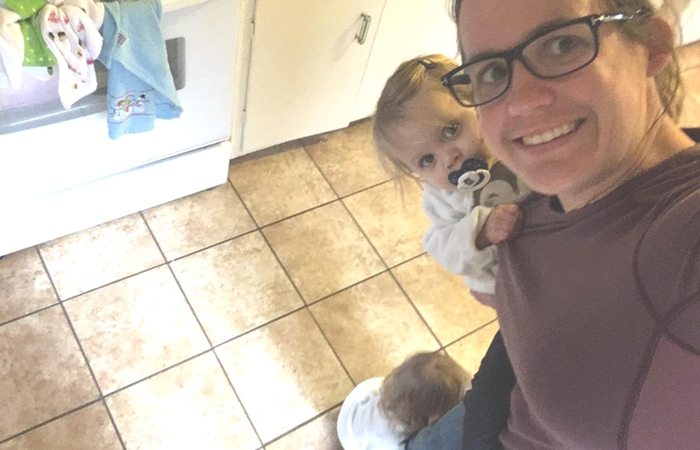 Image Source: Twiniversity
Image Source: TwiniversityThis tangled mess often leads to a backstage pass to your entire life for your parents. Your victories are their victories, your struggles are their struggles, and your dreams are... well, let's just say they might need a permission slip from the parental advisory board. It's like trying to break free from an emotional spider web – the more you struggle, the stickier it gets.
Constant Pressure to Conform
It's like having a backstage pass to your own life, but the script is written by your parents, directed by your parents, and the lead role is, you guessed it, played by your parents. Cue the applause for the drama of expectations! The pressure to conform is like a relentless wind, blowing you away from the shores of self-discovery and straight into the sea of "What Mom and Dad Want."
 Image Source: Time
Image Source: TimePersonal growth? Well, it's on life support in the conform-or-bust scenario. It's hard to spread your wings when Mom and Dad are holding the scissors and trying to trim your feathers into their preferred shape. Your individuality gets stuffed into a box labeled "Parental Approval," and suddenly, you're performing in a puppet show where the strings are held by someone else.
Emotional Black Hole
It's like trying to find a needle in a haystack, except the needle is affection and the haystack is the emotional void left behind by unavailability. It's a puzzle where the pieces of love and meaningful conversations are missing, leaving you to assemble a picture of emotional connection with half the pieces.
 Image Source: Emily & Joel
Image Source: Emily & JoelThe absence of meaningful conversations is like trying to nourish your emotional garden with water from a leaky hose. You're thirsty for understanding, but all you get is a dribble of indifference. It's like trying to grow a garden in a desert – a little emotional oasis would go a long way, but all you're left with is a barren landscape of unspoken words.
Lack of Appreciation
Efforts? Unnoticed. Achievements? Unappreciated. Contributions? Met with the enthusiasm of a snail on a Sunday stroll. It's like being the star of your own show, but the audience is too busy checking their phones to applaud. Your self-worth takes a hit, and suddenly, you're left wondering if you're performing in an empty theater of life.
 Image Source: Pinterest
Image Source: PinterestThe result? Resentment starts creeping in like an uninvited guest at a party. You've got this simmering pot of "I did all this, and nobody noticed!" boiling on the emotional stove. It's a recipe for a relationship soufflé that falls flat – a soufflé made of disappointment and a dash of "Am I invisible?"
Codependency
In a codependent relationship with your parents, it's not just about relying on them for emotional support; it's like attaching an emotional bungee cord that keeps you bouncing back to the same spot. Developing healthy independence becomes as challenging as trying to break free from a spider's web made of feelings.
 Image Source: Good Housekeeping
Image Source: Good HousekeepingThe result? Difficulties in forming and maintaining healthy relationships outside the family unit. It's like trying to plant seeds of connection, but the soil is so saturated with codependency that the roots struggle to reach beyond the family tree. Independence becomes a distant island, visible but seemingly unreachable.
Constant Guilt-Tripping
Consistently using guilt as a control tactic is like having a remote control for your emotions, and your parents are the ones holding it. It's not just a simple nudge of guilt; it's a full-blown emotional hostage situation. Want to make a decision based on your desires and needs? Well, good luck with that when guilt is the puppet master pulling your emotional strings.
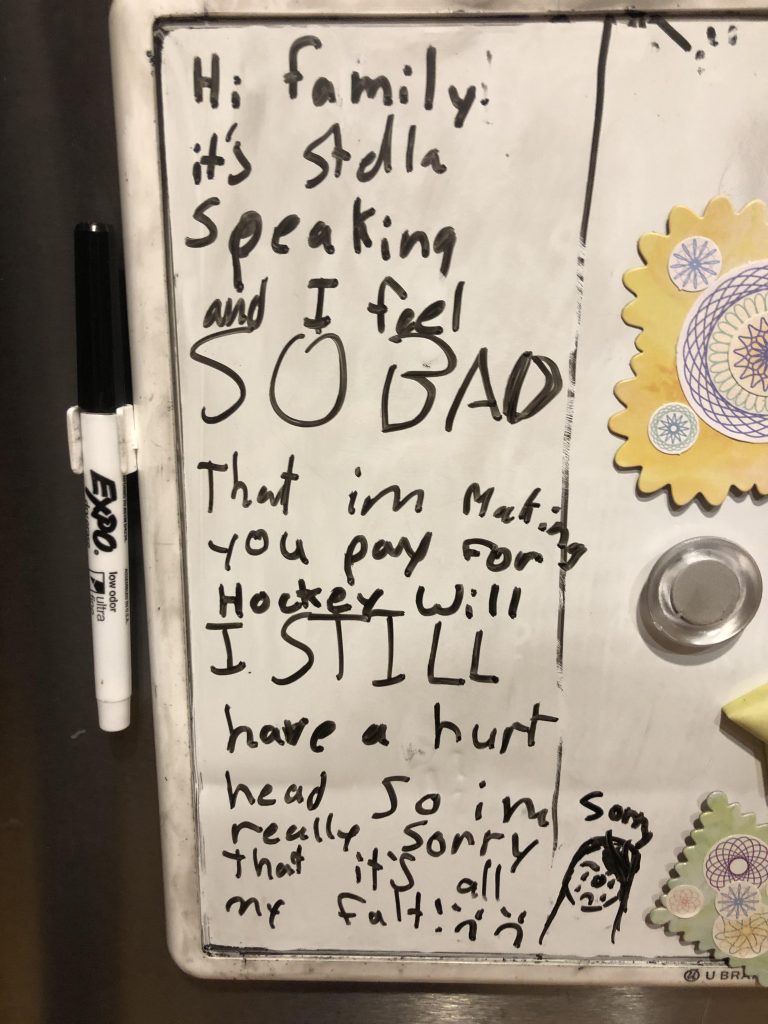 Image Source: Reddit
Image Source: RedditAnd let's not forget the damage to the parent-child relationship. It's like trying to build a sandcastle with a constant wave of guilt eroding the foundation. The trust crumbles, and suddenly, you're left wondering if your decisions are ever truly yours or just a reaction to the guilt-induced emotional climate.
Lack of Emotional Boundaries
Let's step into the emotional tightrope of being a surrogate emotional caretaker for your parents, where the lines between parent and child get fuzzier than a woolly mammoth in a snowstorm. It's like signing up for a role you didn't audition for – Emotional Caretaker Extraordinaire, starring you.
 Image Source: Blooms and Bubbles
Image Source: Blooms and BubblesThe lack of emotional boundaries is like trying to swim in a pool with no edges – you're left drifting in an emotional sea without a clear sense of where you end and they begin. Your role morphs into that of an emotional acrobat, doing flips and somersaults to keep everyone balanced, but who's looking out for your emotional safety net?
Criticism about appearance/body shaming
magine this: you step out, feeling like a rockstar in your own skin, and suddenly your parents become the fashion police or the body critics. It's like expecting a standing ovation but getting a critique instead. The last thing you need is a runway review from the people who are supposed to be your biggest supporters.

image source: reddit.com
Parents should be the architects of your confidence, not the demolition crew. If they're openly criticizing or body-shaming you, it's like they've forgotten their role in the Confidence Construction Project. It's not just about feeling bad about your appearance; it's about feeling bad about who you are.
Belittling from the parent
Belittling is like taking a wrecking ball to the foundations of your child's self-esteem. Parents are meant to be the builders of confidence, not the architects of self-doubt. When they resort to belittling, it's like they've forgotten that their words are the blueprint for their child's self-worth.
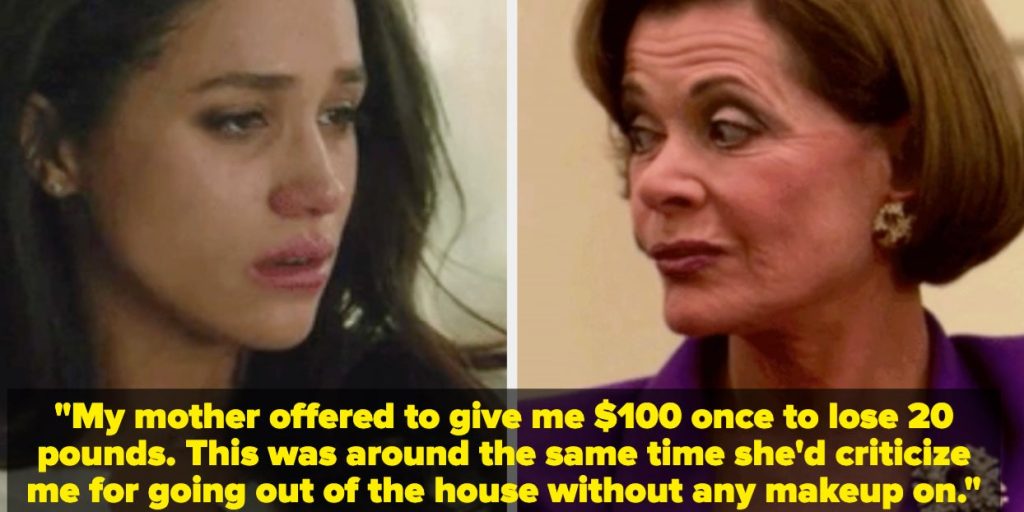
image source: BuzzFeed
Belittling often takes the form of verbal jabs, and it's as destructive as a wrecking ball swinging through a building. Parents should be the safety net, not the source of insecurity. If they're constantly berating you, it's like they've misplaced their parenting handbook, the one that emphasizes building up, not tearing down.
Blaming and shaming
It's like there's a fine line between necessary accountability and unfair blame-shifting, and parents should be the compass guiding their children, not the architects of unnecessary guilt or shame. Blaming a child for things beyond their control or shaming them for their very existence is a toxic concoction that can leave lasting scars.
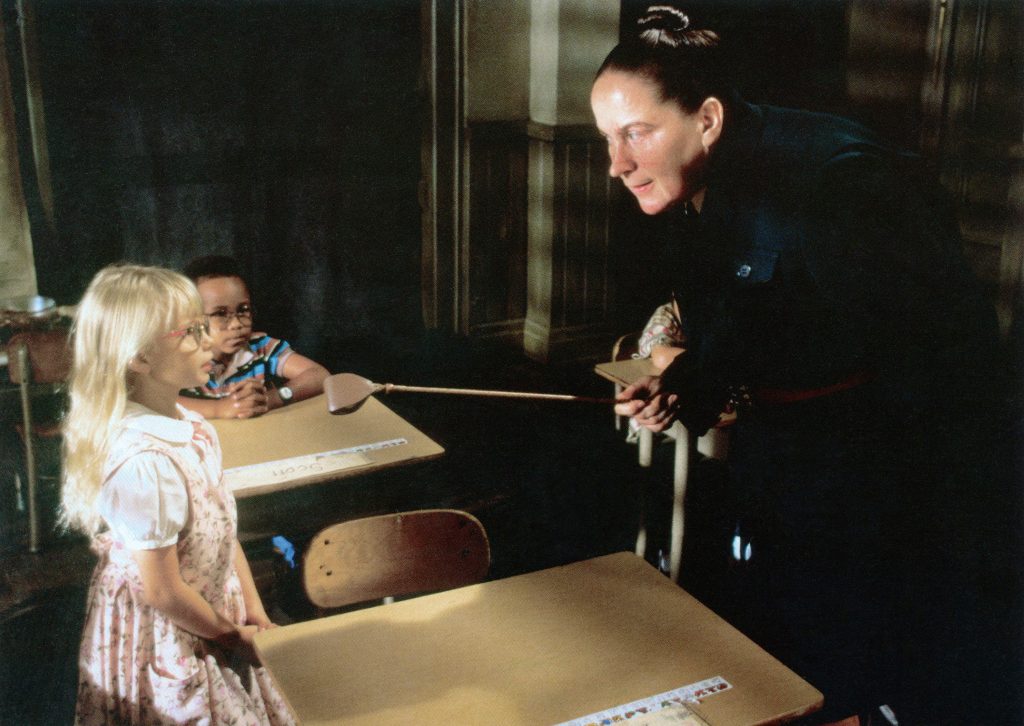
image source: BuzzFeed
Blaming a child for a parent's unhappiness is like expecting a tiny gardener to fix the weather. Children are not responsible for the emotional well-being of their parents, and placing that weight on their shoulders is an unfair burden. It's not only unjust, but it also distorts their understanding of responsibility and self-worth.
Making the child feel like they'll never find love

image source: reddit.com
It's difficult enough for a child to grow up and get to grips with their romantic needs, start dating and hope to find love. This should always be supported by a loving parent who's there if things go wrong - or right. But an unhealthy parent/child relationship can see the parent knocking the child back before they've even started, like telling them they'll never find love, or saying things about their looks and body as a reason that 'nobody will ever date them'.
The parent trying to be supportive - while dismissing emotional needs

image source: reddit.com
There's a certain idea of not keeping your child in bubble - a child needs to be exposed to things, and get hurt, in order to learn about the world. Sometimes, a parent trying to be overly supportive can be just as unhealthy as one not being supportive at all. If a child is upset about something, one of the worst things a parent can do is say 'you're okay' or 'there's no need to be upset'. It's better to let the child be upset and understand their feelings.
Telling you to ignore things if they're bothering you

image source: reddit.com
Children will always bring up things with their parents that are bugging them, whether it's something really small like they hate how their coat fits, to something more of a serious issue, like a person bullying them at school. Oftentimes, a parent saying 'just ignore it' is not a helpful solution, and this can be a really unhealthy thing to do, especially if the situation can get worse even if the child ignores it.
Telling the child to 'toughen up'
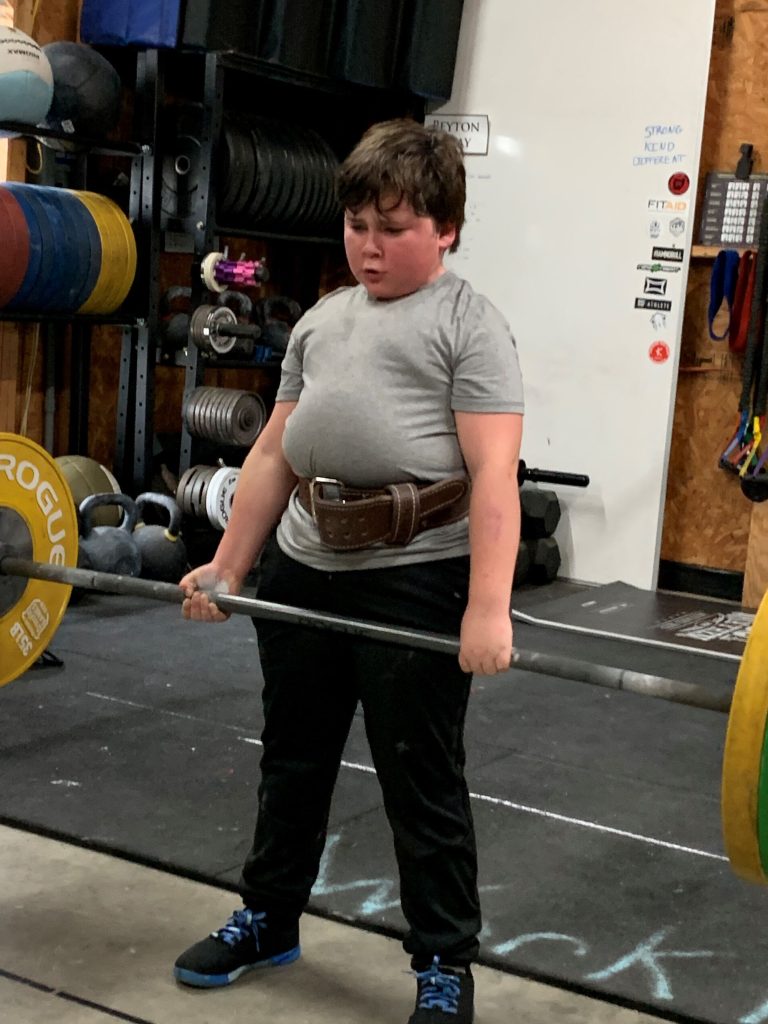
image source: CNN
Children need to learn to be strong, but this shouldn't come at the cost of understanding their emotions or being upset. Especially with young boys, telling them to 'toughen up' or 'be a man' instead of embracing their sensitive side is the wrong thing to do. It can be unhealthy for a parent to instil this idea of a child needing to be 'tough' and stop crying or to stop 'being so emotional' all the time!
Acting completely different in public
Consistency in a parent's behavior is key to a healthy and secure parent-child relationship. If a parent acts completely differently in public compared to behind closed doors, it can indeed raise red flags and create confusion for the child. It's like watching a play with different scripts for the private and public performances.
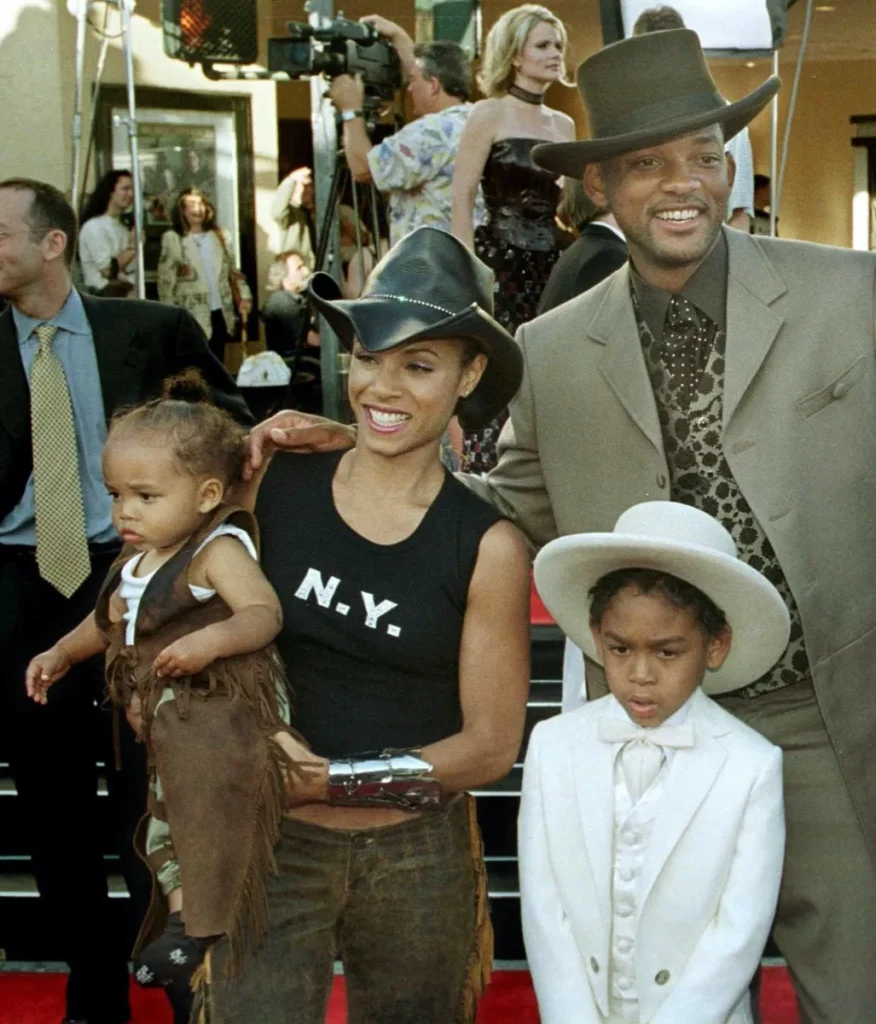
image source: Best Life
Moreover, children often look to their parents as role models, learning about relationships, behavior, and values by observing them. If a parent is two-faced, it sends conflicting messages about how one should behave and what values are important.
Not helping with understanding money
Parents serve as the primary influencers and educators in a child's life, and this includes shaping their understanding of money, budgeting, and financial responsibility. If a parent avoids discussing money matters or doesn't prioritize teaching financial skills, it might leave the child ill-equipped to handle their finances as they grow into adulthood.

image source: reddit.com
Financial literacy is like a toolkit for navigating the complexities of personal finance, and a parent's guidance is instrumental in providing the necessary tools. If a parent neglects this aspect of education, it could set the child up for financial struggles, misunderstandings, or even a lack of confidence when it comes to managing their own money.
Cooking meals based on their perception of a child's weight
Healthy eating is important for growing children, but when a parent's approach becomes rooted in body-shaming, strict calorie limitations, or incorrect assumptions about a child's appearance, it can indeed create a toxic environment. This kind of behavior not only affects a child's physical health but can also have a profound impact on their mental and emotional well-being.

image source: reddit.com
Limiting calories or serving tiny portions based on perceived concerns about a child's weight can send harmful messages about body image, self-worth, and what is considered a healthy relationship with food. It can create feelings of shame and guilt around eating, potentially leading to disordered eating patterns or an unhealthy relationship with food in the long run.
Pointing out things that are wrong with other people
Children are incredibly impressionable, and they often look to their parents as role models. If a parent makes disparaging comments about someone's weight or appearance, it can create a standard of judgment based on physical attributes. This not only instills a negative view of certain appearances but can also foster a sense of body shaming.

image source: Twitter
A healthy approach to body image involves promoting acceptance, diversity, and the understanding that everyone is unique and valuable just as they are. Parents play a crucial role in shaping their children's perceptions and attitudes toward themselves and others.
Asking for professional advice about appearance
When parents seek professional advice or interventions without open communication and consideration for a child's feelings, it can have significant negative consequences on the child's self-esteem and emotional well-being.

image source: reddit.com
For example, making a doctor's appointment about a child's weight without their knowledge or understanding can send the message that there's something inherently wrong with their body. This can lead to body image issues, self-esteem problems, and even the development of unhealthy relationships with food.
Making a child dread a particular age or stage of life
You've pointed out a critical aspect of how societal pressures and expectations, when internalized by parents and passed on to their children, can have detrimental effects on mental well-being. Instilling fear or negative perceptions about certain ages, especially related to fertility, body changes, or societal expectations, can contribute to unnecessary anxiety and stress.

image source: reddit.com
This can be particularly impactful for young women who might already face societal pressures related to appearance, career, and family planning. Focusing on specific ages as critical turning points can overshadow the unique journey and individual timelines that everyone experiences.
Telling your child they're only getting bullied because the person likes them
When a child reaches out to their parent about being mistreated, it's an opportunity for the parent to provide support, understanding, and guidance. Dismissing their concerns by saying, "they're only doing it because they like you" can minimize the child's feelings, invalidate their experiences, and make them reluctant to share future concerns.

image source: Vanity Fair
Instead, parents can acknowledge the child's feelings, offer empathy, and take appropriate steps to address the bullying behavior. Open communication, support, and helping the child develop strategies to cope with or report mistreatment are essential components of a healthy parent-child relationship.
Saying that the sign of growing up is stopping crying
Emotional expression is a fundamental part of being human, and it's crucial for children to learn that all emotions, including crying, are valid and acceptable. Teaching children to suppress their emotions or making them feel guilty for expressing themselves can have long-term consequences on their mental health and emotional well-being.

image source: brightside.me
Encouraging open communication about feelings and validating a child's emotions helps create a supportive environment. It's important for parents to model healthy emotional expression themselves, demonstrating that adults, too, experience and express a variety of emotions.
Always saying 'there are two sides to the story'
When a child reaches out to their parents for support or to share their feelings, it's vital for parents to provide validation and empathy rather than dismissing their emotions. Dismissing a child's feelings by suggesting there are "two sides to the story" can make the child feel unheard, invalidated, and potentially reluctant to open up in the future.

image source: reddit.com
Dismissiveness can contribute to a child feeling isolated or misunderstood, impacting their self-esteem and the way they express themselves. On the other hand, validating a child's emotions creates a foundation for effective communication, emotional intelligence, and a sense of security within the family.
Dismissing mental health issues
Mental health challenges may not always manifest physically, but their impact is just as significant as physical health issues. Dismissing a child's emotional distress can make them feel unheard, invalidated, and may exacerbate their feelings of isolation.
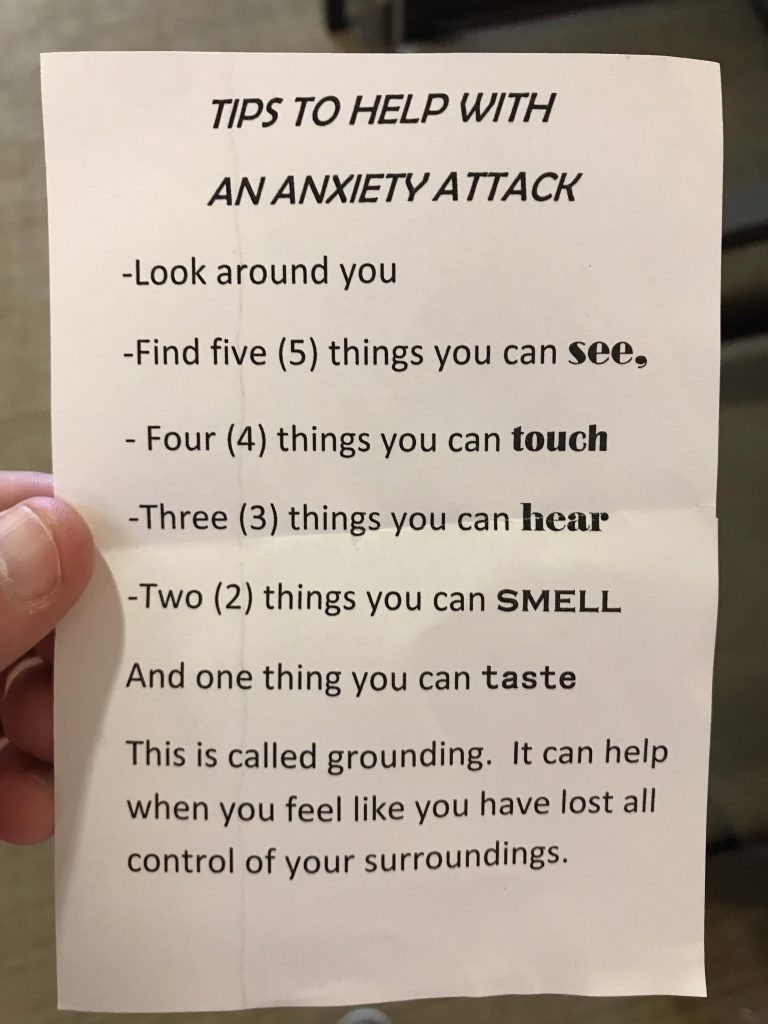
image source: reddit.com
If a child expresses feelings of anxiety, severe lows, or persistent fatigue, it's important for parents to respond with compassion and take the time to understand their child's experiences. Open communication and a willingness to engage in discussions about mental health contribute to a more supportive and understanding family environment.
Taking the friend's side instead of the child's
If a parent consistently dismisses or invalidates a child's feelings, takes the friend's side without considering the child's perspective, or fails to provide constructive guidance, it can be damaging to the child's sense of self-worth and the parent-child relationship.
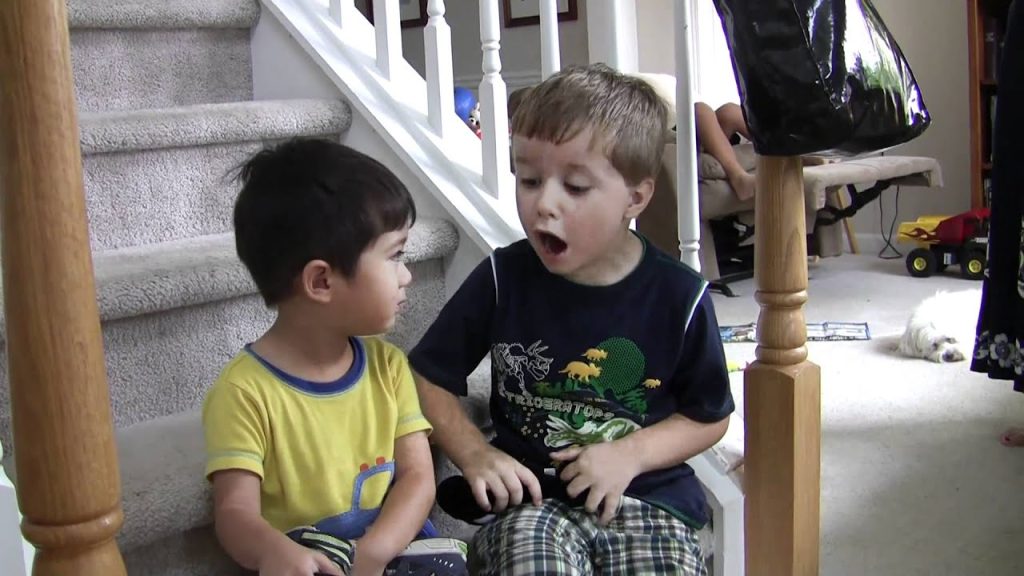
image source: YouTube
A more constructive approach involves actively listening to the child, asking questions to understand their perspective, and offering guidance on how to navigate conflicts in a healthy and constructive way. Parents can also help children develop important skills, such as effective communication and conflict resolution.
Telling the child they have a lot to be grateful for
Children, like adults, can experience a range of emotions, and their feelings are valid regardless of their external circumstances. Dismissing their negative feelings by comparing their situation to others or suggesting they shouldn't feel a certain way can create a sense of guilt, shame, or isolation. It may discourage them from opening up about their emotions in the future.
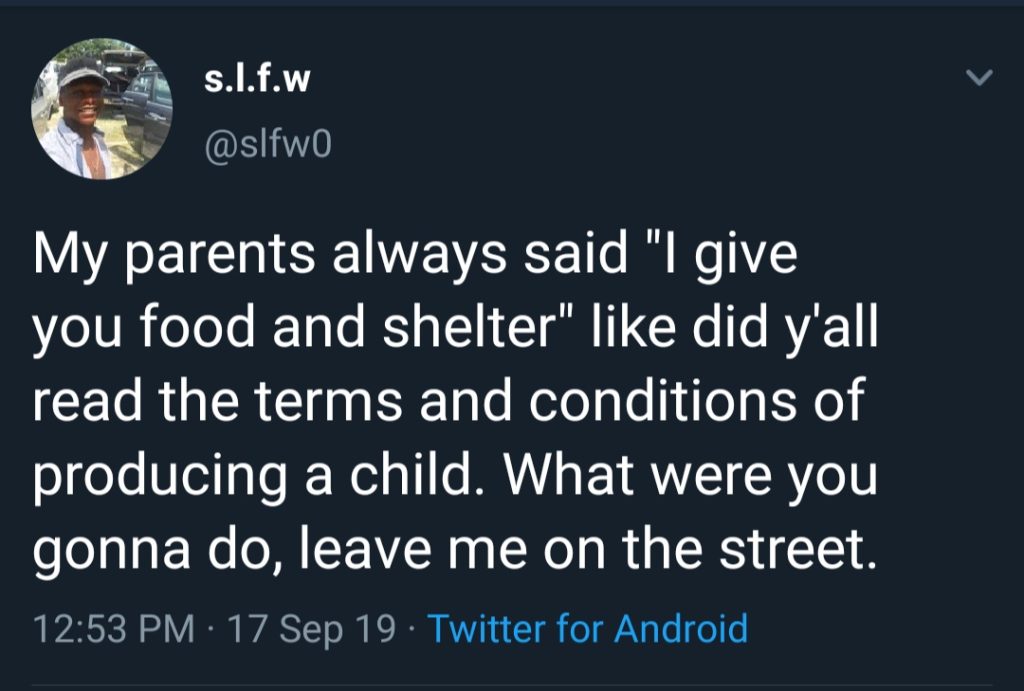
image source: reddit.com
A more supportive approach involves acknowledging the child's feelings, expressing empathy, and creating a space for open communication. Understanding their perspective and working together to explore the root of their feelings can be more constructive than simply telling them how they should or shouldn't feel.
Encouraging independence too much
Constantly reinforcing a message that a child should do everything for themselves and never ask for help can lead to the development of an unhealthy mindset about independence. It may create feelings of isolation, self-reliance to an extreme, and difficulty in reaching out for support when it's necessary.

image source: from1girlto1world.com
Parents can model this behavior by demonstrating that they, too, seek help when needed. This can include asking for assistance from friends, family, or professionals when facing challenges. By doing so, parents show that seeking help is a strength, not a weakness.
 Image Source: Bored PandaThis can leave you eeling like you're in a confidence-crushing game show with no cash prize at the end. It's time to break free from this negative loop and swap those critique sessions for a confidence-boosting pep rally! Your self-esteem deserves its own red carpet moment, not a constant walk of shame.Original content sourced from Femanin.com
Image Source: Bored PandaThis can leave you eeling like you're in a confidence-crushing game show with no cash prize at the end. It's time to break free from this negative loop and swap those critique sessions for a confidence-boosting pep rally! Your self-esteem deserves its own red carpet moment, not a constant walk of shame.Original content sourced from Femanin.com Image Source: Harper's BAZAAR
Image Source: Harper's BAZAAR Image Source: The Today ShowIt's time to break free from the puppet strings and start choreographing your own dance, painting your life's canvas with the colors you choose. Because autonomy isn't just a fancy word; it's your ticket to the freedom festival, and your parents should be cheering you on from the front row, not trying to be the backstage directors of your life.
Image Source: The Today ShowIt's time to break free from the puppet strings and start choreographing your own dance, painting your life's canvas with the colors you choose. Because autonomy isn't just a fancy word; it's your ticket to the freedom festival, and your parents should be cheering you on from the front row, not trying to be the backstage directors of your life. Image Source: RedditTheir absence isn't just a minor glitch; it's a full-blown emotional power outage that leaves you in the dark, searching for a flashlight of reassurance. It's like trying to find Waldo in a sea of emotional chaos, only to discover that he's on a permanent vacation.
Image Source: RedditTheir absence isn't just a minor glitch; it's a full-blown emotional power outage that leaves you in the dark, searching for a flashlight of reassurance. It's like trying to find Waldo in a sea of emotional chaos, only to discover that he's on a permanent vacation. Image Source: Filter Free ParentsAbuse doesn't just leave scars; it's a graffiti artist on the walls of your self-esteem, spray-painting messages you didn't sign up for. It's time to exit stage left from this drama, flip the script, and surround yourself with healthy relationships that don't resemble a demolition derby.
Image Source: Filter Free ParentsAbuse doesn't just leave scars; it's a graffiti artist on the walls of your self-esteem, spray-painting messages you didn't sign up for. It's time to exit stage left from this drama, flip the script, and surround yourself with healthy relationships that don't resemble a demolition derby. Image Source: Everything Jersey CityIt's time to break free from this comparison trap, where the only winners are insecurity and unhealthy competition. Your life is not a competition; it's a unique journey with its own twists and turns. So, let's hit pause on the endless comparisons and start celebrating each family member's unique melody in this symphony called life.
Image Source: Everything Jersey CityIt's time to break free from this comparison trap, where the only winners are insecurity and unhealthy competition. Your life is not a competition; it's a unique journey with its own twists and turns. So, let's hit pause on the endless comparisons and start celebrating each family member's unique melody in this symphony called life. Image Source: IMDbThese manipulative tactics don't just create tension; they build a wall between genuine connection and leave you questioning your own emotions. It's crucial to recognize these signs, set boundaries, and prioritize your mental well-being. You deserve relationships built on open communication and mutual respect, not a constant tug-of-war fueled by emotional manipulation.
Image Source: IMDbThese manipulative tactics don't just create tension; they build a wall between genuine connection and leave you questioning your own emotions. It's crucial to recognize these signs, set boundaries, and prioritize your mental well-being. You deserve relationships built on open communication and mutual respect, not a constant tug-of-war fueled by emotional manipulation. Image Source: RedditIn a healthy parent-child dynamic, personal space is sacred ground, and autonomy is the air we breathe. When those boundaries are consistently ignored, it's time to have a serious chat about the importance of respecting each other's space. Because a relationship without
Image Source: RedditIn a healthy parent-child dynamic, personal space is sacred ground, and autonomy is the air we breathe. When those boundaries are consistently ignored, it's time to have a serious chat about the importance of respecting each other's space. Because a relationship without Image Source: MamamiaChronic unresolved conflicts are like a festering wound; the longer they linger, the deeper the damage. It's time to address the underlying issues, not just put a band-aid on the surface. A healthy relationship isn't about avoiding conflicts but finding constructive ways to resolve them. It's time to let the storm pass, clear the air, and create a space where conflicts are addressed head-on.
Image Source: MamamiaChronic unresolved conflicts are like a festering wound; the longer they linger, the deeper the damage. It's time to address the underlying issues, not just put a band-aid on the surface. A healthy relationship isn't about avoiding conflicts but finding constructive ways to resolve them. It's time to let the storm pass, clear the air, and create a space where conflicts are addressed head-on. Image Source: RedditLove should be the glue that holds relationships together, not a reward for meeting certain criteria. When affection becomes a conditional currency, it leaves you feeling like you're on an emotional rollercoaster, and the ride never stops. It's time to break free from this love-on-a-leash scenario, where your worth isn't determined by a checklist.
Image Source: RedditLove should be the glue that holds relationships together, not a reward for meeting certain criteria. When affection becomes a conditional currency, it leaves you feeling like you're on an emotional rollercoaster, and the ride never stops. It's time to break free from this love-on-a-leash scenario, where your worth isn't determined by a checklist. Image Source: Cultured VulturesConstant mistrust is like trying to build a house on quicksand – no matter how hard you try, the foundation remains unstable. It's time to address the trust deficit and rebuild the foundation with open communication and understanding. A healthy relationship is built on trust, the kind that allows you to dance through the rhythm of life.
Image Source: Cultured VulturesConstant mistrust is like trying to build a house on quicksand – no matter how hard you try, the foundation remains unstable. It's time to address the trust deficit and rebuild the foundation with open communication and understanding. A healthy relationship is built on trust, the kind that allows you to dance through the rhythm of life. Image Source: RedditWithout the emotional support and understanding, it's challenging to feel heard or supported, impacting your overall emotional well-being. It's crucial to address and bridge this gap for a healthier, more emotionally fulfilling relationship.
Image Source: RedditWithout the emotional support and understanding, it's challenging to feel heard or supported, impacting your overall emotional well-being. It's crucial to address and bridge this gap for a healthier, more emotionally fulfilling relationship. Image Source: JunkeeFeeling invalidated and unimportant in the eyes of your parents isn't just a fleeting emotion; it's a heavy backpack you carry through life, slowing down your stride. It's time to unload that baggage and create an environment that nurtures your self-confidence and growth.
Image Source: JunkeeFeeling invalidated and unimportant in the eyes of your parents isn't just a fleeting emotion; it's a heavy backpack you carry through life, slowing down your stride. It's time to unload that baggage and create an environment that nurtures your self-confidence and growth. Image Source: The Gaia GirlXThis mind-bending magic trick can leave you scratching your head, wondering if you're the star of your own Truman Show. Next thing you know, you're in a mental maze, navigating self-doubt like it's a dark, twisty labyrinth. Your perception of reality gets more twisted than a pretzel at a yoga class gone wrong.
Image Source: The Gaia GirlXThis mind-bending magic trick can leave you scratching your head, wondering if you're the star of your own Truman Show. Next thing you know, you're in a mental maze, navigating self-doubt like it's a dark, twisty labyrinth. Your perception of reality gets more twisted than a pretzel at a yoga class gone wrong. Image Source: CheezburgerNow, we all know open dialogue is the secret sauce in this relationship stew. But if you're stuck in a conversational desert with your parents, it's like trying to find water in a barren wasteland. You're parched for meaningful exchanges, and every attempt at a chat feels like sending a message in a bottle that never gets a reply.
Image Source: CheezburgerNow, we all know open dialogue is the secret sauce in this relationship stew. But if you're stuck in a conversational desert with your parents, it's like trying to find water in a barren wasteland. You're parched for meaningful exchanges, and every attempt at a chat feels like sending a message in a bottle that never gets a reply. Image Source: RedditAnd let's not forget the uncertainty that comes with the emotional jackpot. You never know if a simple request for the TV remote will be met with a smile or a thunderous storm cloud. It's like living in a sitcom with no laugh track because, well, nobody knows if it's time to laugh or brace for impact.
Image Source: RedditAnd let's not forget the uncertainty that comes with the emotional jackpot. You never know if a simple request for the TV remote will be met with a smile or a thunderous storm cloud. It's like living in a sitcom with no laugh track because, well, nobody knows if it's time to laugh or brace for impact. Image Source: USA TodayAnd oh, the stress! It's like carrying the weight of a thousand textbooks on your shoulders. Your backpack isn't just filled with notebooks and pens; it's a metaphorical Everest of expectations that you're expected to conquer daily. This isn't just the pursuit of excellence; it's a full-blown marathon with no finish line in sight.
Image Source: USA TodayAnd oh, the stress! It's like carrying the weight of a thousand textbooks on your shoulders. Your backpack isn't just filled with notebooks and pens; it's a metaphorical Everest of expectations that you're expected to conquer daily. This isn't just the pursuit of excellence; it's a full-blown marathon with no finish line in sight. Image Source: RedditBut hey, here's the silver lining: recognizing this empathy deficit is your ticket off Emotional Island. It's time to build a bridge over the empathy gap and create a two-way street of understanding. So, grab your metaphorical hammer and nails, because it's time to construct the empathy expressway in your family dynamic!
Image Source: RedditBut hey, here's the silver lining: recognizing this empathy deficit is your ticket off Emotional Island. It's time to build a bridge over the empathy gap and create a two-way street of understanding. So, grab your metaphorical hammer and nails, because it's time to construct the empathy expressway in your family dynamic! Image Source: BuzzFeedIf you find yourself having to constantly listen to your parents talk it can leave you feeling. It's like having a backstage pass to the concert of life, but you're stuck in the green room, wondering if anyone even knows you're part of the band.
Image Source: BuzzFeedIf you find yourself having to constantly listen to your parents talk it can leave you feeling. It's like having a backstage pass to the concert of life, but you're stuck in the green room, wondering if anyone even knows you're part of the band. Image Source: RedditFavoritism throws a massive wrench into the well-oiled machine of sibling camaraderie. Suddenly, that bond you thought was unbreakable starts to resemble a fragile Jenga tower. As one sibling gets the spotlight, the others are left in the shadows, nursing a cocktail of hurt feelings and inadequacy.
Image Source: RedditFavoritism throws a massive wrench into the well-oiled machine of sibling camaraderie. Suddenly, that bond you thought was unbreakable starts to resemble a fragile Jenga tower. As one sibling gets the spotlight, the others are left in the shadows, nursing a cocktail of hurt feelings and inadequacy. Image Source: RedditWhen parents unintentionally slam the door on emotional expression, you become a master of suppression, hiding your feelings behind a facade that even Oscar-worthy actors would envy. Without emotional safety, forging a real connection with your parents feels about as likely as winning a golden ticket to the Willy Wonka factory of genuine connections.
Image Source: RedditWhen parents unintentionally slam the door on emotional expression, you become a master of suppression, hiding your feelings behind a facade that even Oscar-worthy actors would envy. Without emotional safety, forging a real connection with your parents feels about as likely as winning a golden ticket to the Willy Wonka factory of genuine connections. Image Source: RedditAnd here's the kicker – they'll swear up and down that they're not sorry because, you know, they didn't technically murder anyone. It's like they've got a PhD in justifying their actions. "Apologize? Who, me? I'm innocent, I tell ya!"
Image Source: RedditAnd here's the kicker – they'll swear up and down that they're not sorry because, you know, they didn't technically murder anyone. It's like they've got a PhD in justifying their actions. "Apologize? Who, me? I'm innocent, I tell ya!" Image Source: Farm Fresh for LifeAnd let's not forget the legendary phrase: "You're too sensitive." Oh, the golden ticket to making you second-guess your entire existence. It's as if having feelings is some kind of cosmic crime, and you're the emotional fugitive on the run. "Sensitive? Me? Nah, I'm as tough as nails," you'll say with a quivering lip and a heart full of confusion.
Image Source: Farm Fresh for LifeAnd let's not forget the legendary phrase: "You're too sensitive." Oh, the golden ticket to making you second-guess your entire existence. It's as if having feelings is some kind of cosmic crime, and you're the emotional fugitive on the run. "Sensitive? Me? Nah, I'm as tough as nails," you'll say with a quivering lip and a heart full of confusion. Image Source: TwiniversityThis tangled mess often leads to a backstage pass to your entire life for your parents. Your victories are their victories, your struggles are their struggles, and your dreams are... well, let's just say they might need a permission slip from the parental advisory board. It's like trying to break free from an emotional spider web – the more you struggle, the stickier it gets.
Image Source: TwiniversityThis tangled mess often leads to a backstage pass to your entire life for your parents. Your victories are their victories, your struggles are their struggles, and your dreams are... well, let's just say they might need a permission slip from the parental advisory board. It's like trying to break free from an emotional spider web – the more you struggle, the stickier it gets. Image Source: TimePersonal growth? Well, it's on life support in the conform-or-bust scenario. It's hard to spread your wings when Mom and Dad are holding the scissors and trying to trim your feathers into their preferred shape. Your individuality gets stuffed into a box labeled "Parental Approval," and suddenly, you're performing in a puppet show where the strings are held by someone else.
Image Source: TimePersonal growth? Well, it's on life support in the conform-or-bust scenario. It's hard to spread your wings when Mom and Dad are holding the scissors and trying to trim your feathers into their preferred shape. Your individuality gets stuffed into a box labeled "Parental Approval," and suddenly, you're performing in a puppet show where the strings are held by someone else. Image Source: Emily & JoelThe absence of meaningful conversations is like trying to nourish your emotional garden with water from a leaky hose. You're thirsty for understanding, but all you get is a dribble of indifference. It's like trying to grow a garden in a desert – a little emotional oasis would go a long way, but all you're left with is a barren landscape of unspoken words.
Image Source: Emily & JoelThe absence of meaningful conversations is like trying to nourish your emotional garden with water from a leaky hose. You're thirsty for understanding, but all you get is a dribble of indifference. It's like trying to grow a garden in a desert – a little emotional oasis would go a long way, but all you're left with is a barren landscape of unspoken words. Image Source: PinterestThe result? Resentment starts creeping in like an uninvited guest at a party. You've got this simmering pot of "I did all this, and nobody noticed!" boiling on the emotional stove. It's a recipe for a relationship soufflé that falls flat – a soufflé made of disappointment and a dash of "Am I invisible?"
Image Source: PinterestThe result? Resentment starts creeping in like an uninvited guest at a party. You've got this simmering pot of "I did all this, and nobody noticed!" boiling on the emotional stove. It's a recipe for a relationship soufflé that falls flat – a soufflé made of disappointment and a dash of "Am I invisible?" Image Source: Good HousekeepingThe result? Difficulties in forming and maintaining healthy relationships outside the family unit. It's like trying to plant seeds of connection, but the soil is so saturated with codependency that the roots struggle to reach beyond the family tree. Independence becomes a distant island, visible but seemingly unreachable.
Image Source: Good HousekeepingThe result? Difficulties in forming and maintaining healthy relationships outside the family unit. It's like trying to plant seeds of connection, but the soil is so saturated with codependency that the roots struggle to reach beyond the family tree. Independence becomes a distant island, visible but seemingly unreachable. Image Source: RedditAnd let's not forget the damage to the parent-child relationship. It's like trying to build a sandcastle with a constant wave of guilt eroding the foundation. The trust crumbles, and suddenly, you're left wondering if your decisions are ever truly yours or just a reaction to the guilt-induced emotional climate.
Image Source: RedditAnd let's not forget the damage to the parent-child relationship. It's like trying to build a sandcastle with a constant wave of guilt eroding the foundation. The trust crumbles, and suddenly, you're left wondering if your decisions are ever truly yours or just a reaction to the guilt-induced emotional climate. Image Source: Blooms and BubblesThe lack of emotional boundaries is like trying to swim in a pool with no edges – you're left drifting in an emotional sea without a clear sense of where you end and they begin. Your role morphs into that of an emotional acrobat, doing flips and somersaults to keep everyone balanced, but who's looking out for your emotional safety net?
Image Source: Blooms and BubblesThe lack of emotional boundaries is like trying to swim in a pool with no edges – you're left drifting in an emotional sea without a clear sense of where you end and they begin. Your role morphs into that of an emotional acrobat, doing flips and somersaults to keep everyone balanced, but who's looking out for your emotional safety net?


















